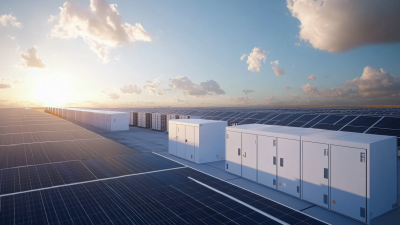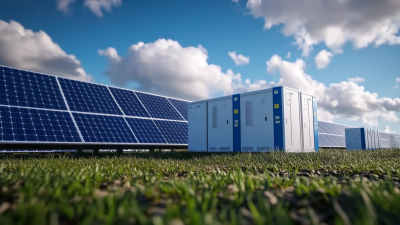As the world moves towards more sustainable energy solutions, household battery storage is becoming an increasingly vital component in energy management. The International Renewable Energy Agency (IRENA) projects that global energy storage capacity could exceed 1,000 gigawatts by 2030, with significant contributions from household systems. This shift not only allows homeowners to harness renewable energy more efficiently but also provides a safeguard against rising electricity costs and grid instability.
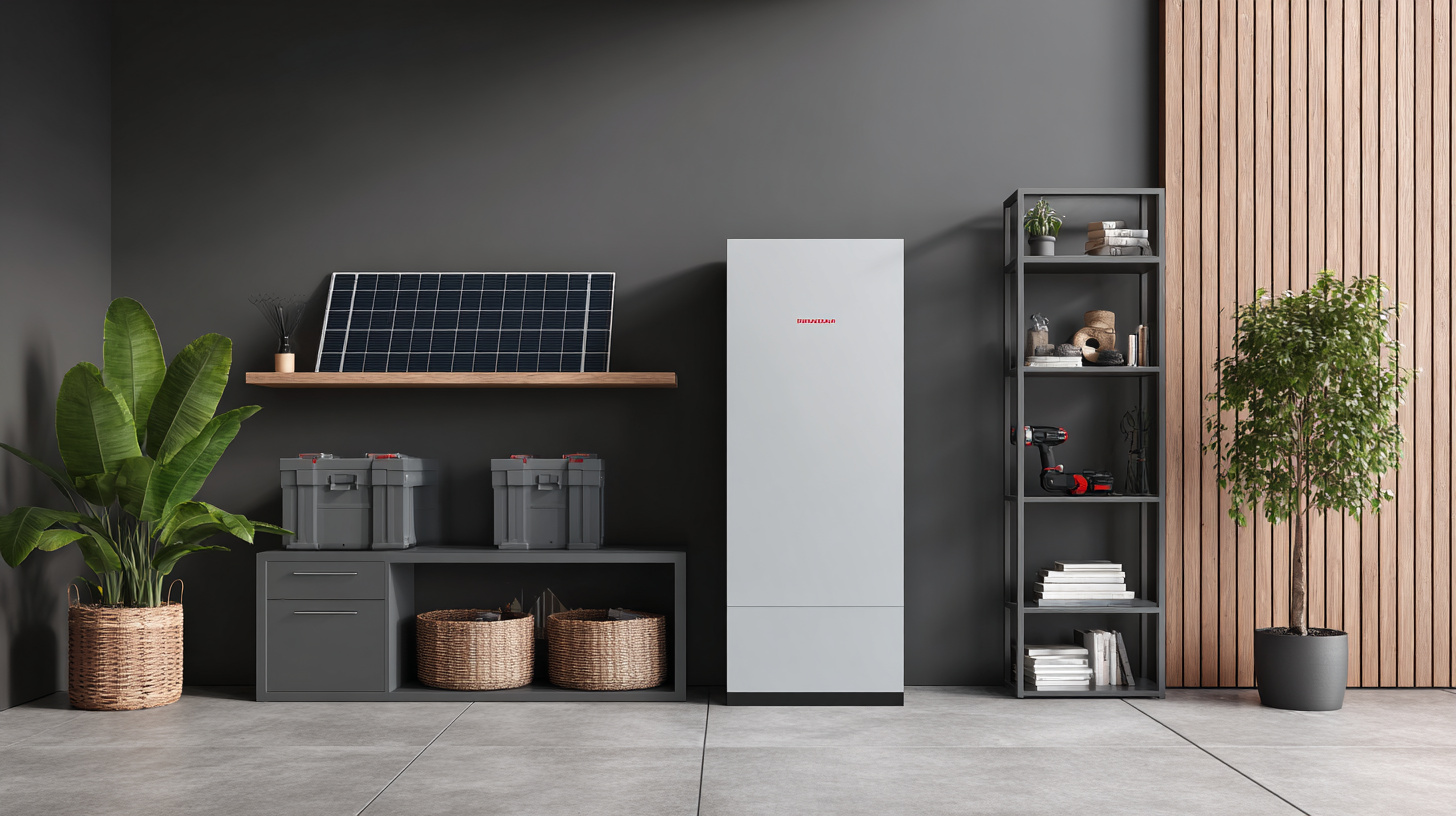
According to a report from Bloomberg New Energy Finance, the price of lithium-ion batteries has dropped by nearly 89% since 2010, making household battery storage solutions more accessible than ever. By understanding the benefits of these innovative systems, homeowners can make informed decisions that not only enhance energy independence but also promote a cleaner environment for future generations.
Household battery storage solutions have emerged as a practical way to harness renewable energy and improve energy efficiency in homes. By storing energy generated from solar panels or during off-peak hours, these systems provide a reliable power source, ensuring that homeowners can utilize electricity when they need it most. Understanding the basics involves recognizing the different types of batteries available, such as lithium-ion and lead-acid, each with its unique benefits and limitations. These technologies allow families to reduce their reliance on the grid, mitigate energy costs, and enhance energy independence.
Moreover, battery storage systems come equipped with smart technology that can optimize energy consumption based on usage patterns. This feature enables homeowners to draw power from the battery during peak usage times, even when solar generation is low, ultimately leading to significant savings on electricity bills. Additionally, many modern systems include monitoring capabilities, offering users real-time insights into their energy usage and system performance. By exploring household battery storage solutions, families can embrace a more sustainable lifestyle while enjoying the benefits of increased energy resilience and security.
Household battery storage solutions are becoming increasingly popular among homeowners seeking efficiency and sustainability. One of the key benefits is the ability to store excess energy generated from renewable sources like solar panels. This stored energy can then be used during peak demand times or during outages, ensuring that homeowners maintain a consistent power supply without relying on grid electricity.
Another significant advantage is cost savings. By utilizing battery storage, homeowners can reduce their reliance on fluctuations in energy prices, storing energy when it's cheaper and using it when prices are higher. Moreover, battery storage can contribute to energy independence, allowing families to lessen their environmental impact while enhancing the resilience of their energy systems. Over time, these benefits can lead to substantial savings and greater control over household energy usage.
| Benefit | Description | Impact on Homeowners |
|---|---|---|
| Energy Independence | Ability to store energy generated from renewable sources, reducing reliance on the grid. | Increased control over energy sources and reduced energy costs. |
| Backup Power Supply | Provides electricity during outages, ensuring home essentials remain powered. | Peace of mind and uninterrupted access to important services. |
| Cost Savings | Reduces energy bills by allowing homeowners to use stored energy during peak pricing periods. | Long-term financial benefits and lower electricity expenses. |
| Environmental Benefits | Encourages the use of renewable energy sources and reduces carbon footprint. | Contribution to a more sustainable future and reduced environmental impact. |
| Increased Property Value | Modern energy solutions can make properties more attractive to potential buyers. | Potential for higher resale value and appeal to eco-conscious buyers. |
When selecting a household battery storage solution, it's crucial to evaluate your specific energy needs and the features of various systems. According to a report by BloombergNEF, global residential energy storage capacity is anticipated to reach 158 GWh by 2024, indicating the growing adoption of these technologies. Homeowners should consider factors such as battery capacity, depth of discharge, and efficiency ratings when comparing different options. A system with a higher efficiency rating will maximize solar energy use, reducing reliance on grid electricity and providing substantial savings over time.
Another important aspect to consider is the system's scalability. As reported by the Energy Storage Association, nearly 40% of homeowners choose battery systems that can be expanded in the future, allowing for increased storage capacity as energy needs evolve. Additionally, integrating smart technology can enhance your battery system, offering real-time monitoring and energy management capabilities. Such features can help you optimize your energy consumption and further lower your utility costs, making it essential to choose a battery storage solution that aligns with both current and future household requirements.
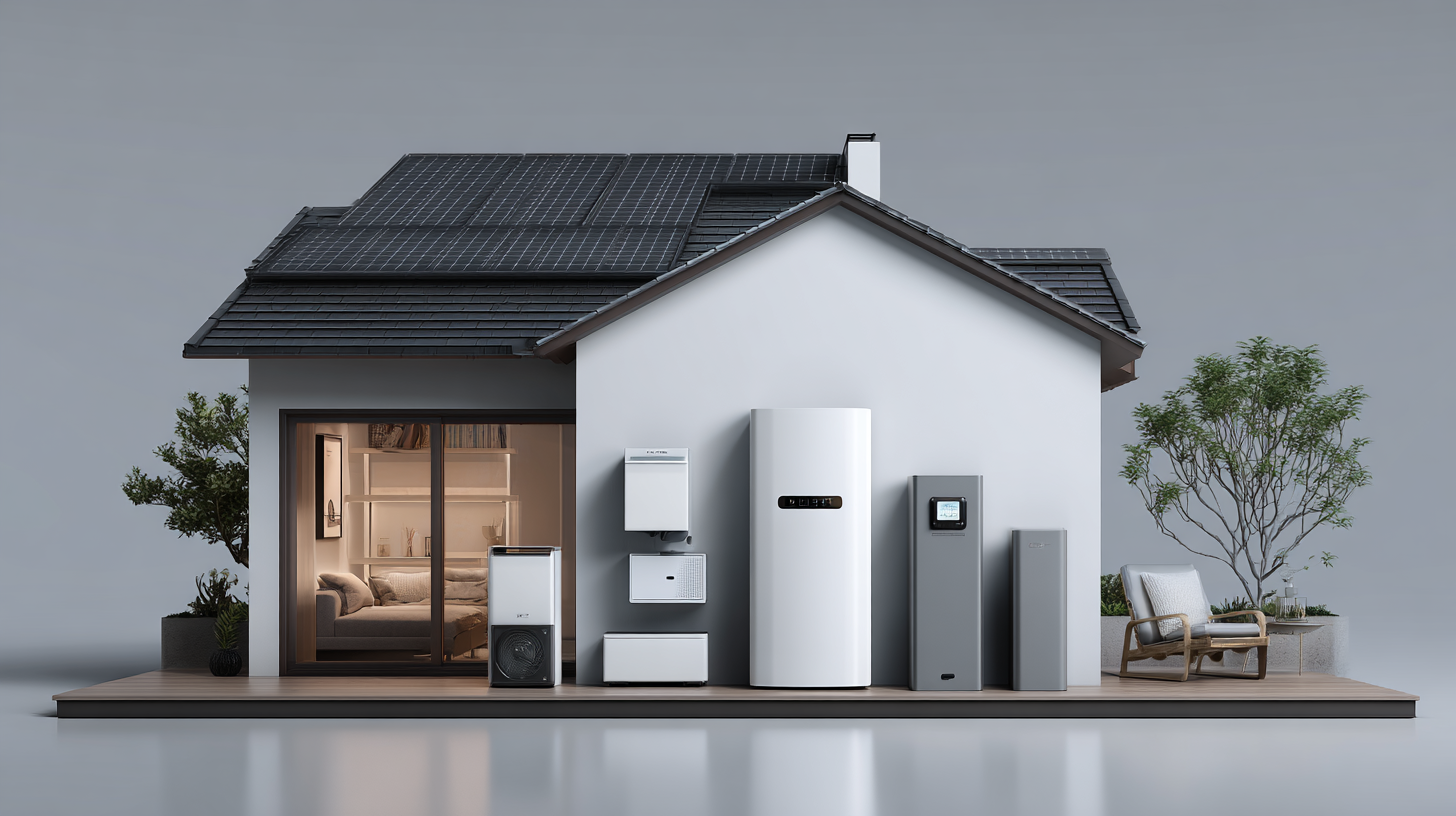
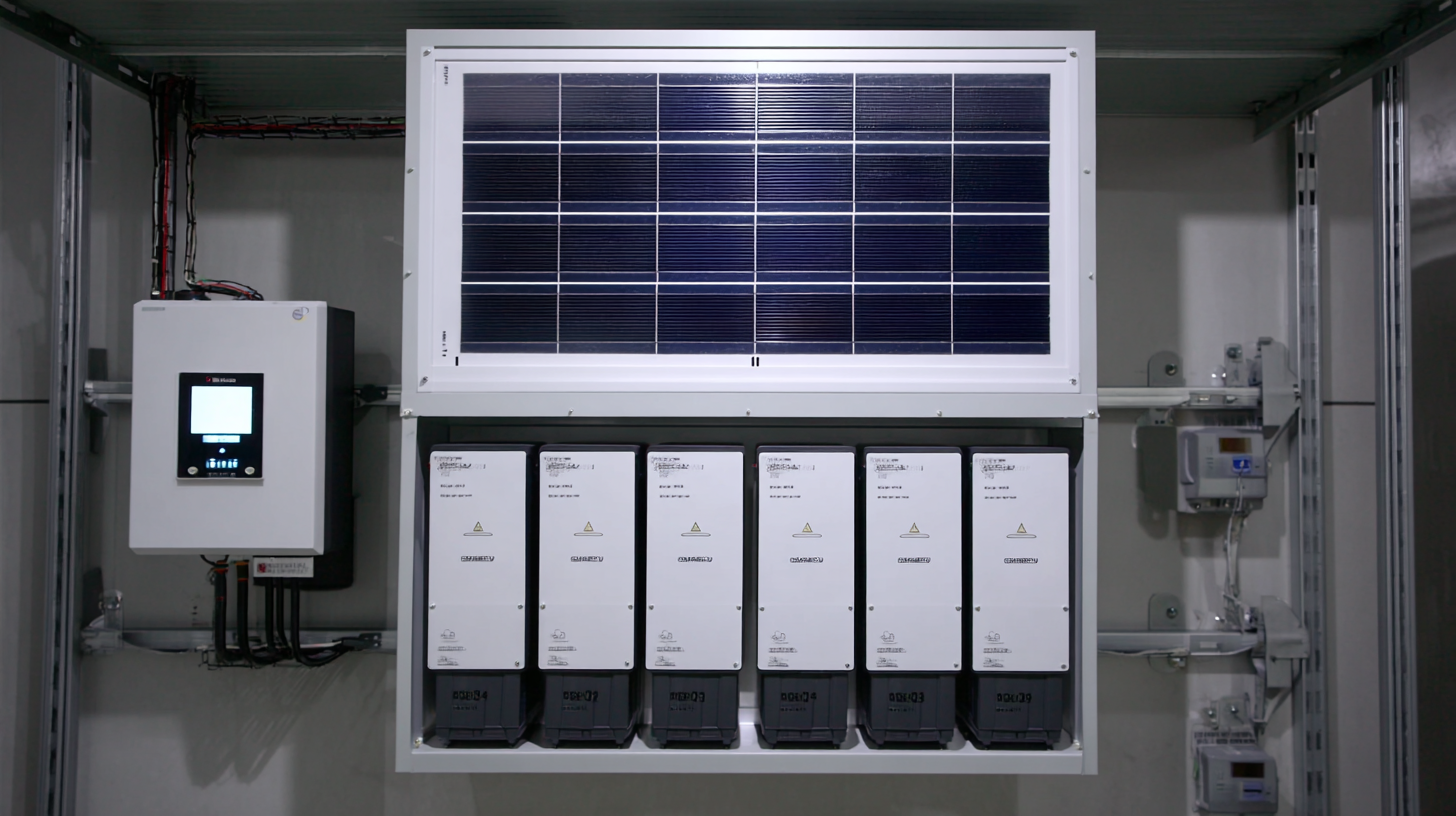 Household battery storage solutions have emerged as a vital component in the pursuit of
energy efficiency. By leveraging battery technology, homeowners can store excess energy generated from renewable sources, such as solar panels, and utilize it during peak demand periods. According to a report by the
International Energy Agency (IEA), worldwide installed battery storage capacity for residential use is projected to grow from 4 gigawatt-hours (GWh) in 2020 to 44 GWh by 2030. This dramatic increase underscores the growing recognition of battery storage as a strategic tool for energy management.
Household battery storage solutions have emerged as a vital component in the pursuit of
energy efficiency. By leveraging battery technology, homeowners can store excess energy generated from renewable sources, such as solar panels, and utilize it during peak demand periods. According to a report by the
International Energy Agency (IEA), worldwide installed battery storage capacity for residential use is projected to grow from 4 gigawatt-hours (GWh) in 2020 to 44 GWh by 2030. This dramatic increase underscores the growing recognition of battery storage as a strategic tool for energy management.
Moreover, battery storage systems can significantly reduce electricity costs by enabling consumers to shift their energy consumption patterns. A study by the
U.S. Department of Energy found that households implementing battery storage solutions could save up to 30% on their energy bills, depending on their local utility rates and energy consumption habits. Moreover, with the integration of smart home technologies, these systems can intelligently manage energy flows, maximizing usage during off-peak hours and incentivizing smarter consumption practices. As such, investing in household battery storage is not only an environmentally conscious choice but also an economically savvy decision for today’s energy landscape.
When considering the installation of household battery storage solutions, several best practices can optimize efficiency and ensure you get the most out of your home battery system. First and foremost, it’s essential to assess your home’s energy needs by analyzing your consumption patterns and peak usage times. This will help determine the appropriate battery size and type. Consulting with a professional installer can also provide insights into the right system configuration tailored to your specific needs.
Another critical aspect is to choose a suitable location for your battery system. Ideally, batteries should be installed in a cool, dry place with good ventilation to prevent overheating. Additionally, proximity to your electrical panel can minimize installation costs and enhance performance. Keeping the system accessible for maintenance checks is also vital. Regular monitoring of the battery performance can help identify any issues early and ensure that you are fully benefiting from your energy storage solution. By adhering to these installation tips, homeowners can enjoy a more efficient and reliable energy source that supports their sustainability goals.


